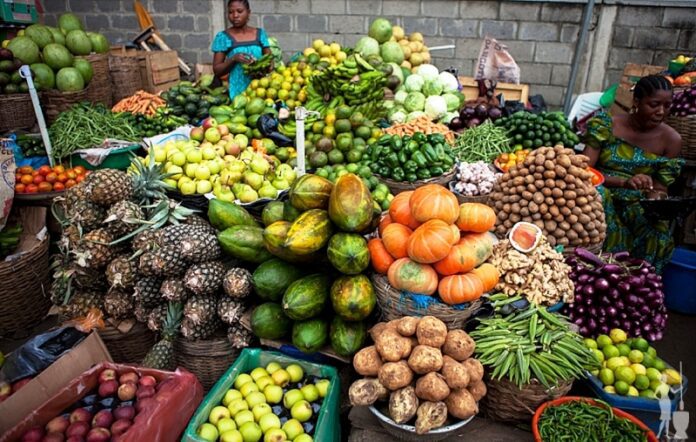President Bola Tinubu’s administration recently declared a state of emergency on food security, which is a decision that should have been made much earlier by the administration that came before it, led by Muhammadu Buhari. Food shortages in Nigeria were inevitable, long overdue, and largely caused by the increased and persistent banditry attacks on farmers and the frequent clashes between herders and farmers that had marked the country over the previous 20 years, from former President Olusegun Obasanjo’s administration to Buhari’s.
Even though it has been applauded by all, the declaration of a state of emergency on food security is only the first step in the right direction. To close the gaping hole of food insecurity in the nation, a lot of planning and policies must be put in place and put into action. This is just the beginning.
The largest food producing nations in the world, China, India, and the United States, already have best practises in place for agriculture and food production, so the Nigerian government doesn’t need to try to invent the wheel when it comes to food sufficiency. All Nigeria needs to do is take what it can from these nations and make a few minor adjustments to fit its surroundings. These nations have achieved food security through a variety of policies, initiatives, and plans.
The world’s largest producer of food is China. Through a combination of factors including agricultural reforms, technological advancements, and government policies, it has achieved food sufficiency. China has improved irrigation systems, adopted modern farming methods, and used more pesticides and fertilisers. The government has also given farmers support, loans, and subsidies to help them increase their output. Additionally, China has introduced high-yielding crop varieties and made investments in research and development to increase crop yields.
India is the world’s second-largest producer of food. Through the 1960s-era Green Revolution, which the Obasanjo military regime attempted to imitate in the 1970s with Operation Feed the Nation, it has achieved food security. However, there was no consistency in government policy because of the frequent changes in leadership. The introduction of high-yielding crop varieties, enhanced irrigation techniques, and increased application of fertilisers and pesticides were all part of the Green Revolution. This helped India become self-sufficient in food production and resulted in a significant rise in agricultural productivity. Various policies and programmes have also been put into place by the government to assist farmers, including the provision of subsidies, credit options, and agricultural extension services.
The United States produces a significant amount of the world’s food thanks to its extensive agricultural land, cutting-edge technology, and effective farming methods. Through the use of mechanisation, precision farming, and biotechnology, the nation has become self-sufficient in food. The productivity and efficiency of farming operations have increased with the use of machinery and modern equipment. The United States also makes significant investments in research and development, which has resulted in the creation of genetically modified crops that are resistant to insects, diseases, and bad weather. The nation also has a strong infrastructure for food storage, distribution, and transportation, ensuring a consistent supply.
President Bola Tinubu and his advisors in the areas of economic, agricultural, and rural development should first prioritise enhancing the country’s agricultural infrastructure if Nigeria is to join the ranks of major food producers like China, the US, and India. Nigeria needs to make investments in modernising its irrigation systems, storage facilities, transportation networks, and processing facilities. This will boost agricultural sector productivity, lower post-harvest losses, and boost overall effectiveness.
The current administration also needs to increase funding for research and development. To increase crop yields, create drought-resistant varieties, and enhance farming practises, Nigeria should devote more funds to agricultural research and development. This will facilitate farmers’ adoption of cutting-edge techniques and equipment, boosting output and improving produce quality.
Thirdly, promotion of mechanisation and contemporary farming methods is necessary. The productivity of agriculture can be greatly increased by promoting the use of contemporary machinery and equipment, such as tractors, harvesters, and irrigation systems. To encourage the use of mechanisation and the promotion of effective farming methods, the government can offer farmers subsidies or loans.
Fourth, there needs to be improved access to credit and financing. For farmers to invest in contemporary farming practises, buy high-quality inputs, and expand their operations, they must have access to affordable credit. To ensure farmers have easy access to credit, the government and financial institutions should create specially suited financial products and services, such as microfinance programmes.
Fifth, the Tinubu administration needs to improve extension and education programmes for farmers. It is crucial to give farmers instruction and training in contemporary farming methods, crop management, and post-harvest procedures. More farmers should have access to extension services, which can give them current knowledge, direction, and technical assistance.
Sixth, it’s important to promote private sector involvement. To encourage investments from the private sector in agriculture, the government should create an enabling environment. Tax incentives, land reforms, and simplified regulations can all be used to accomplish this. Public-private partnerships can be created to use the resources and expertise of the private sector for agricultural development.
Seventh, the government needs to enhance value chain integration and market access. Nigeria should prioritise creating effective domestic and international market connections. This includes setting up farmer cooperatives, constructing storage and processing facilities, and promoting contract farming. By strengthening value chains, farmers will receive fair prices for their produce and post-harvest losses will be minimised.
Read Also: Tinubu vows to involve diaspora Nigerians in policy implementation
Eighth, there needs to be improvement in agricultural governance and policies. Government should create and implement comprehensive agricultural policies that support sustainable farming methods, provide for the needs of smallholder farmers, and guarantee food security. In order to draw investments and promote growth, the agricultural sector needs to practise good governance, accountability, and transparency.
Ninthly, Nigeria should encourage the raising of a variety of crops and livestock in order to diversify its agricultural production. As a result, there will be less reliance on a small number of commodities, and resilience to market and climate change will be improved.
Tenth, the government ought to support value addition and agroprocessing. Instead of just exporting raw products like cocoa, cashew nuts, sesame seeds, and other agricultural products without value addition, Nigeria will be able to move up the value chain and increase the value of its agricultural exports by encouraging agroprocessing industries. As a result, there will be more employment opportunities, higher farm incomes, and economic expansion.
Nigeria, the largest economy in Africa in terms of GDP, can increase agricultural productivity, increase food security, and become a major food producer by putting these strategies into practise. Nigeria could also export its goods to the developed economies and feed the region.
Overall, a combination of factors including technological development, governmental support, research and development, and effective farming methods can help Nigeria become self-sufficient in food.
Join Television Nigerian Whatsapp Now
Join Television Nigerian Facebook Now
Join Television Nigerian Twitter Now
Join Television Nigerian YouTUbe Now





